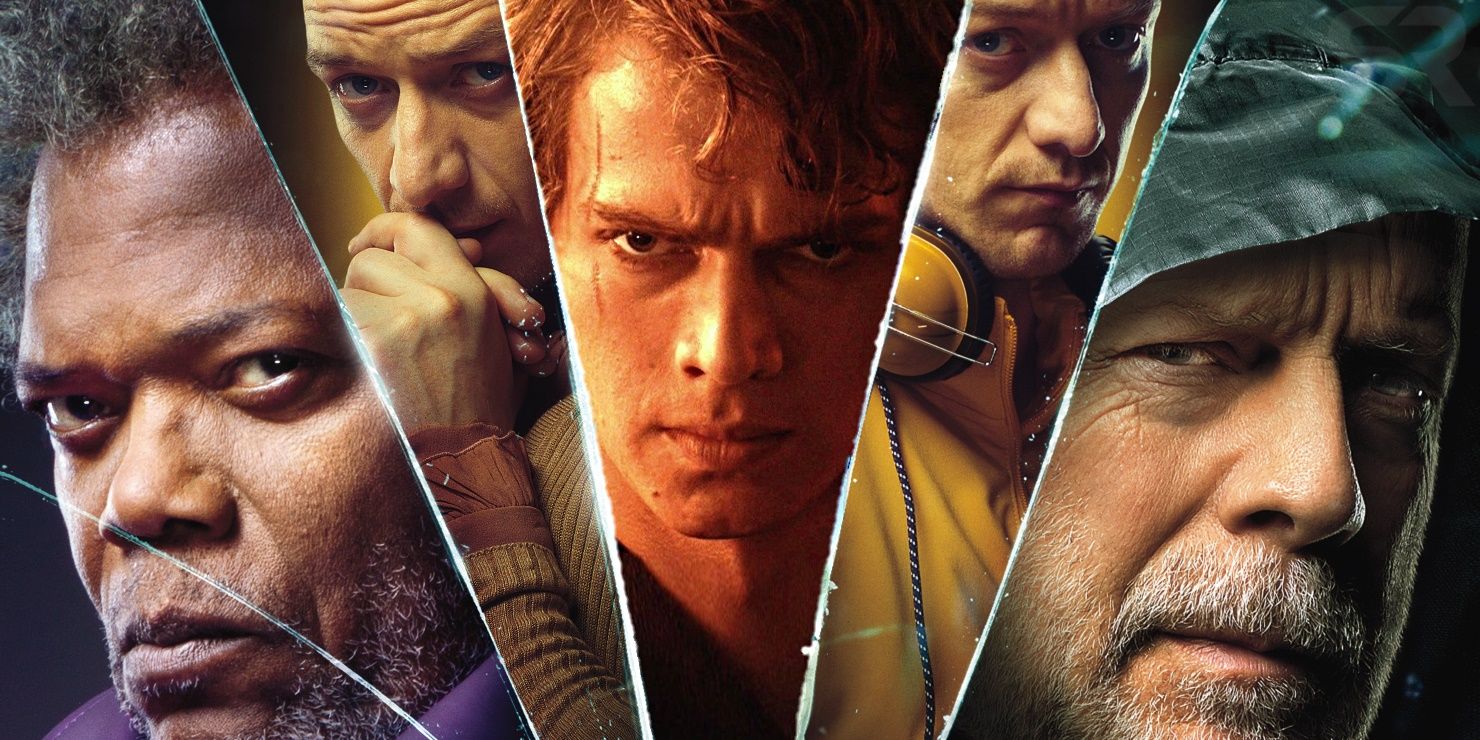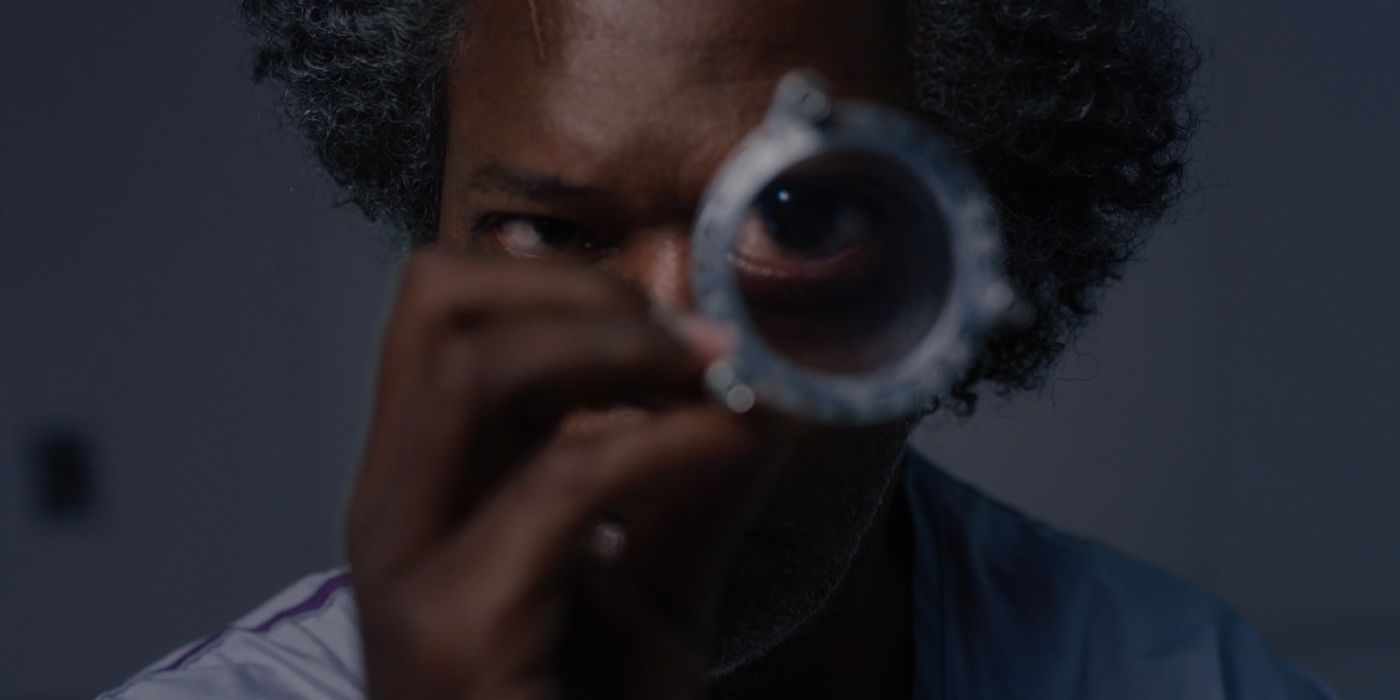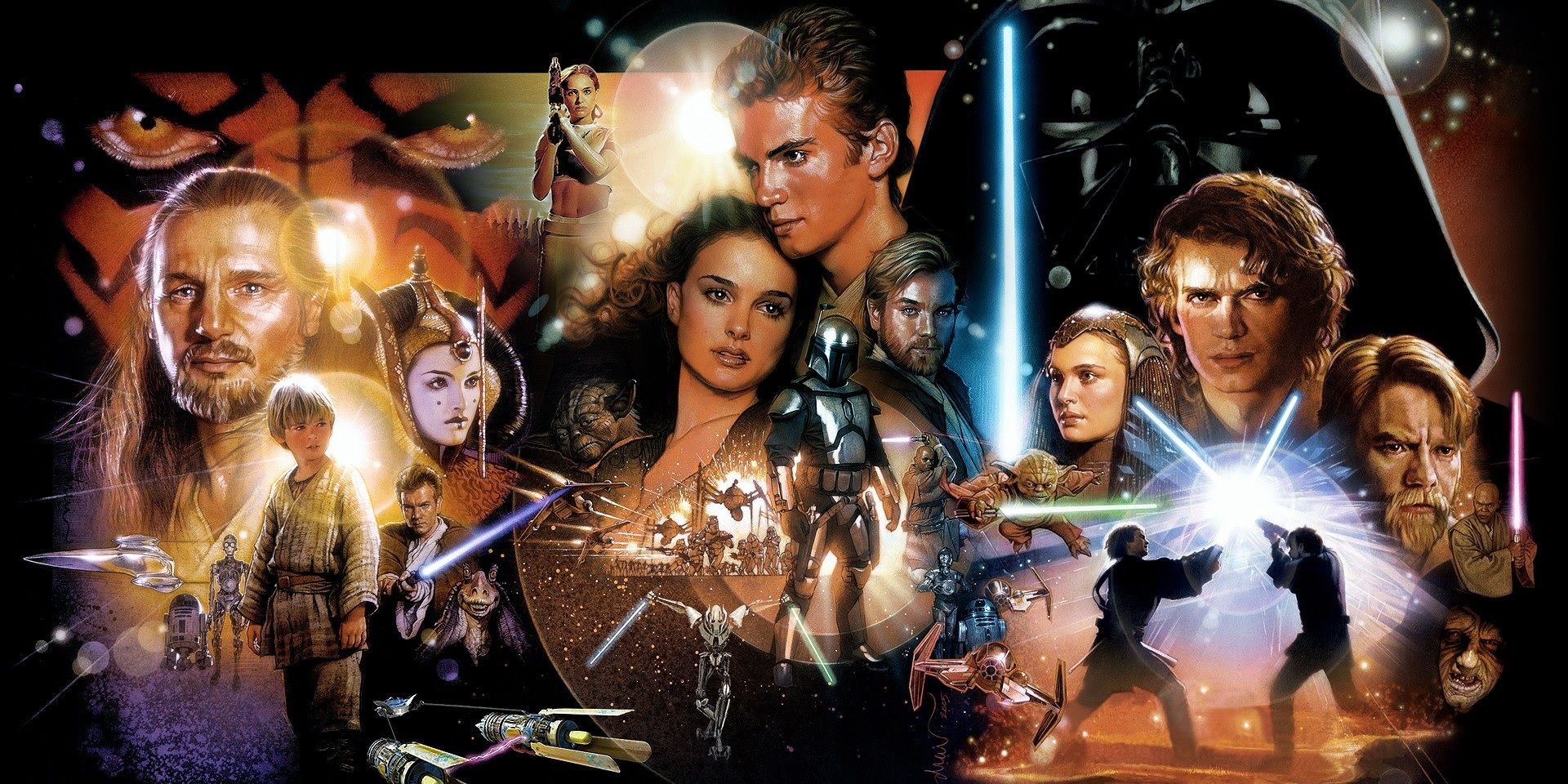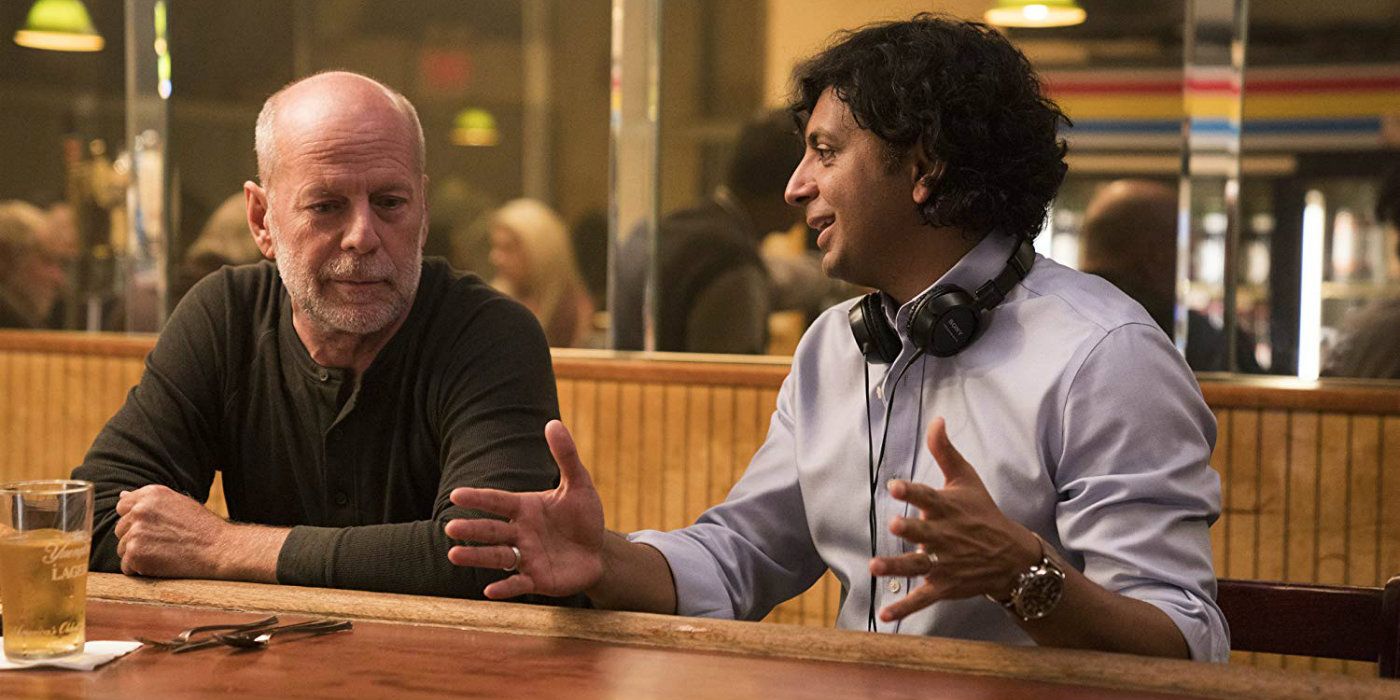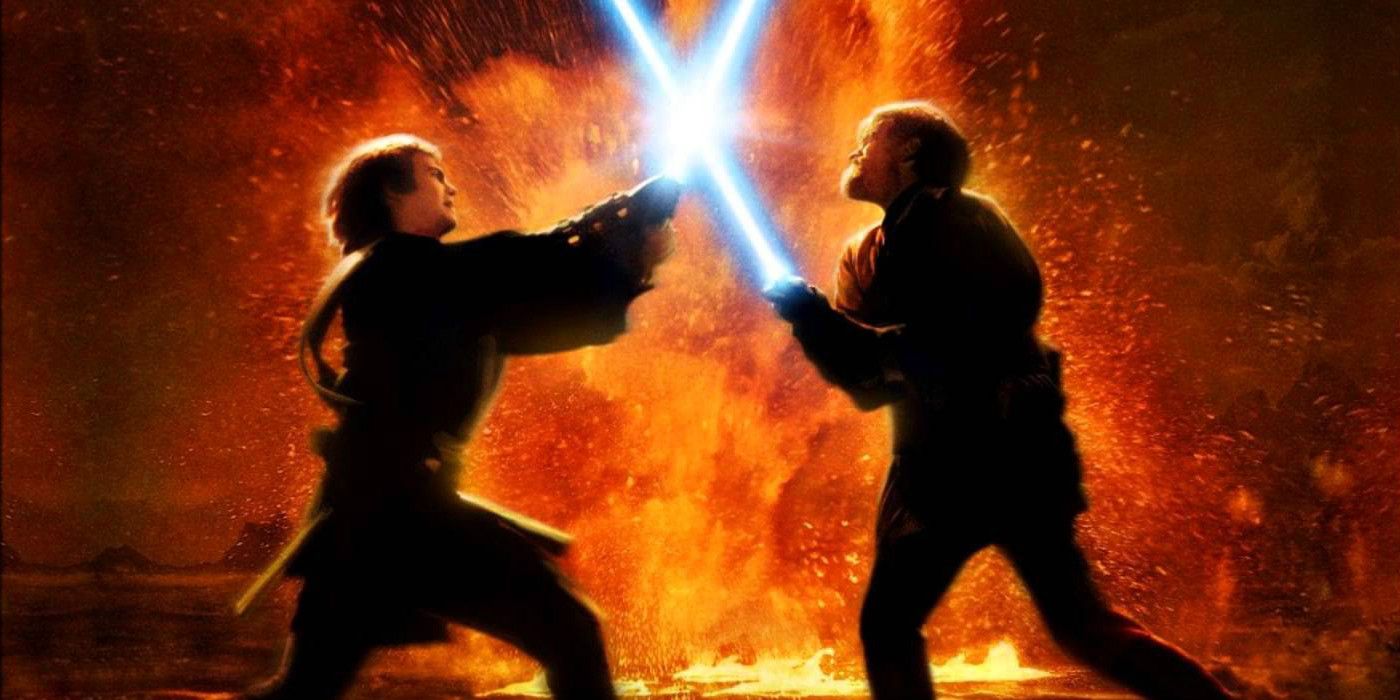Glass is essentially M. Night Shyamalan's version of the Star Wars prequels, but that isn't necessarily a bad thing. Back in 2000, the filmmaker followed up the success of The Sixth Sense with Unbreakable - a movie that was truly ahead of its time. Released well before the current comic book movie boom (remember, Sam Raimi's first Spider-Man film is still two years away), Unbreakable took a grounded and intimate look at the classic superhero origin story and comic book tropes. It was deconstructing a genre that had yet to truly take off in mainstream cinema.
At the time of its initial release, Unbreakable earned generally favorable reviews and did okay at the box office ($248.1 million worldwide against a $75 million budget), but its reputation drastically improved over the last two decades. Nowadays, it's considered one of Shyamalan's best offerings (if not his greatest achievement) and the passionate fan base yearned for more stories in this universe. People were thrilled when Split revealed itself as a stealth Unbreakable sequel, generating widespread anticipation for Glass. Unfortunately, the trilogy finale is something of a mixed bag, similar to another long-awaited continuation of a beloved film series.
Related: The Unbreakable Trilogy Ranked Worst to Best
Glass' Idea Is Lost In Confused Filmmaking
At the heart of the Unbreakable franchise is a fascinating question. What if superheroes exist in the real world and comic books people read are based on their incredible feats? How would people react to that and what consequences would that have? Belief is a powerful theme in this series, and it's one that carries Glass through a majority of its running time. While Glass' second act dangerously flirts with repeating beats from earlier movies, the idea that this is all an illusion in the characters' heads is interesting (if not fully-fleshed out) and made for some solid drama. Even though the audience has seen David Dunn and Kevin Wendell Crumb accomplish extraordinary things, their actions are explained in a way in which they seem plausible (at least for a movie), planting doubt in their minds. It's up to Mr. Glass to show the world what he already knows by helping his fellow inmates (and, as the ending revealed, other possible heroes) realize their full potential with a master plan that harkens back to his goals in Unbreakable.
And yet, this "origin story" is hamstrung by clunky execution. Shyamalan was downright prophetic in 2000, but demonstrated an inability to adjust to the times in 2019. Even though we live in a world where movies based on Black Panther and Aquaman can cross $1 billion worldwide, Glass gets dragged down with eye-rolling dialogue that over-explains basic comic book storytelling terminology (what a "showdown" is) and suggests disdain for the target audience (Sarah Paulson's comic book convention line). Additionally, Glass gets lost in its third act, which throws one too many twists at viewers and leaves them feeling more confused than enthralled. Moviegoers walk out of the theater asking more questions about what they just saw, as opposed to raving about the finale Shyamalan constructed. It's almost like he didn't entirely know what to do when all of these great characters came together, so he tried to see what would stick. Sadly, Glass never reaches its own potential.
The Star Wars Prequels Were Not Bad Concepts
If the "good idea, poor execution" line sounds familiar, it's because that's been used for 20 years to describe George Lucas' Star Wars prequel trilogy. The issues fans have with those movies are well-documented by now - whether they be an over-reliance on CGI effects, boring discussions about galactic politics, or unconvincing romances between leads with no chemistry. Even though the prequels have their fans, most would admit there are fundamental filmmaking flaws at the heart of them. This can largely be attributed to Lucas being the primary creative voice behind the trilogy. He's admitted he's not much of a wordsmith, which explains why the screenplays were a tad wooden and underwhelming. As for directing, Lucas deserves credit for ushering Hollywood into the digital age, but The Phantom Menace was his first directing credit since the original Star Wars. That seems like a lot of rust to shake off and may explain why Lucas initially offered the prequels to other directors.
Related: Star Wars Prequel Rotten Tomatoes Scores Have Changed A Lot Over Time
But if one looks past Jar Jar Binks, "I don't like sand," and prequel memes, there's actually a highly compelling narrative at the core of the trilogy. It chronicles the tragic fall of Anakin Skywalker, an idealistic young man who is constantly manipulated and lied to by the organization he swore allegiance to and finds the belonging he seeks in the galaxy's ultimate evil. It's a story about a man consumed by the fear of losing those closest to him (a truly relatable and humanistic character motivator) and the lengths he'll go to ensure their safety. There's some juicy material there that could have delivered some great films. Remember, Lucas' greatest strength was always coming up with ideas (he co-created Indiana Jones). He was at his creative peak when working with Gary Kurtz, Lawrence Kasdan, and Steven Spielberg. Maybe if Ron Howard accepted the Phantom Menace job, things turn out differently. Lucas had the prequels mapped out in 1977, so they're inherently connected to the original trilogy. What we ended up getting was a good narrative told poorly.
Page 2: How M. Night Shyamalan Compares To George Lucas
Shyamalan and Lucas Comparisons
The similarities between Shyamalan and Lucas don't stop there; their career arcs are fairly common. Lucas was a maverick who burst on to the scene with American Graffiti (earning him a Best Director nomination) and then went on to redefine the movie industry with Star Wars. The galaxy far, far away changed just about everything in the film industry, and Lucas was showered with more praise and accolades. Shyamalan was also a wunderkind, crowned by Newsweek as "The Next Spielberg" following The Sixth Sense (which was a major Oscar contender in 1999) Unbreakable, and Signs. But as anyone familiar with this story knows, things quickly went off track.
Lucas quickly became jaded regarding what drew people to Star Wars and soured his relationship with Kurtz as a result. He was convinced audiences only cared about the spectacle and action rather than the story, and many of the creative decisions he made in the years after (beginning with Return of the Jedi) reflect that. A case can also be made Lucas surrounded himself with yes men who wouldn't challenge his vision for the prequels, which ended up harming his reputation as an artist. Shyamalan arguably took things a step further and really let ego derail his once-promising career (see: Lady in the Water). He ended up having to self-finance The Visit, Split, and Glass partially because studios were afraid to invest in his movies and he wanted to maintain full creative control. Glass is most definitely a work of its odd auteur, and while there's something to admire about that, that's not an entirely good thing, either.
Glass' Star Wars Comparison Isn't Bad
Admittedly, being compared to the Star Wars prequels is not exactly ideal for a movie, but a closer analysis shows it's not all bad. In the years since Lucas' last trilogy was released, the prequels have seen their reputation improve, with many people being able to see past the faults and appreciate what Lucas was attempting with them. The films' most die-hard supporters wouldn't claim they're perfect works of art, but decades removed from the hype and anticipation, the prequels can prove to be rewarding viewing experiences thanks to their contributions to the overall Star Wars mythology and advances in filmmaking technology. Even Disney's modern Star Wars movies are indebted to some of Lucas' prequel concepts, with The Last Jedi basing Luke's characterization (in part) on events from the prequels and Solo brining Maul back to live-action.
Related: Reviews Are Being Too Hard On Glass
Perhaps time will be kinder to Glass as well. Already, there's a noticeable audience/critic divide (look at the Rotten Tomatoes ratings), indicating that most moviegoers were onboard with what they saw. That's an encouraging sign, as it means people are willing to give Glass a chance despite the poor word-of-mouth. And to be fair to Shyamalan, this is far from his worst outing as a director. Glass disappointed some and failed to stick the landing in the finale, but it's by no means another Last Airbender or After Earth. Shyamalan is very much working in his wheelhouse of small-scale, character-driven drama, playing up the psychological aspects in service of a fascinating story. In an era where Hollywood churns out one comic book adaptation after another, seeing something that represents the very antithesis of the superhero blockbuster is admirable, and film buffs should be able to appreciate the ambition of an auteur - even if the direction the narrative takes are maddening at times. Once people have an opportunity to really dissect Glass, it may garner a passionate following a la Unbreakable nearly 20 years ago.
-
The initial frustrations over Glass and the Star Wars prequels are understandable. In both cases, fans of the two series spent a prolonged period of time dreaming of what the films could be like and may have been caught off guard when the delivered product didn't match expectations or took some unconventional routes to reach its conclusion. It's incredibly rare for any highly-anticipated movie to live up to the demands of viewers, especially when a decade or more has passed between installments. It took a while, but Star Wars fans (at least some of them) came around on the prequels and now accept their place in the franchise canon. Shyamalan can only hope his supporters give Glass another shot and embrace the peculiar and different film he crafted.

